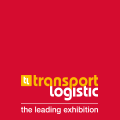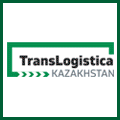
If Russia pulls out of the agreement on Ukrainian grain exports via the Black Sea, the port of Klaipėda could become a new gateway for this cargo. The analysis of various alternatives for the grain to reach the Lithuanian port city suggests the possibility of using the inland waterway corridor.
The Nemunas River connects to the port
Alternatives for grain shipments from Ukraine are identified in the Baltic Sea. As the European Union looks for solutions, there are opportunities to attract investment in the necessary infrastructure.
The Port of Klaipėda has already announced that it could receive more than 10 million tonnes of grain, but the biggest problem is still how to get it to the port.
The Lithuanian Maritime Cluster, which brings together the country's maritime business and scientific community, proposes that the optimal solution for connecting to the port should be found via the Nemunas Artery. The work of analysing such options is already underway and significant efforts are being made to revitalise river freight shipping on the country's largest river. Lithuania's first post-independence barge to carry cargo from Klaipėda Seaport docked at the Port of Marvelė in Kaunas in 2019, and since then, a number of successful logistics projects have been implemented and the shipping channel is being steadily modernised.
The Lithuanian Maritime Cluster, together with the founders and members of this association, Klaipėda Sea Cargo Company Bega, AB West Shipyard, in cooperation with the Inland Waterways Authority and Klaipėda University, has prepared a project "Electrification for the Green Port" for 2021. The implementation of this project would promote the transport of goods by inland waterways, expand the market for and accessibility of Klaipėda port services, and reduce CO2 emissions from the transport of goods between Lithuanian regions and the Klaipėda seaport.

More economically and sustainably
According to Laimonas Rinkus, CEO of Bega, when assessing the possibility of integrating Lithuania's inland waterways into a new logistics corridor that would enable grain to reach the port, it is important to take into account a number of favourable circumstances. "When transporting Ukrainian grain by rail and transhipping it in Kaunas, it would be necessary to change rail carriers or tranship containers once instead of twice, which would have a significant impact on cost savings. This could be used to improve Linas Agro's existing grain storage and transhipment capacities at the Nemunas quays in Kaunas and Jurbarkas. European experience also shows that inland waterway transport can be 30-40% cheaper than land transport," said the head of Bega.
According to Rimkus, Western countries should not forget the environmental factor when assessing the economic aspects and the importance of ensuring smooth export processes. The green inland waterway corridor would ensure zero-emission transport of cargo if the electric barge pusher project developed in Lithuania is enabled. Bega also uses advanced technologies such as electric locomotives and robotic systems to eliminate CO2 emissions at its terminals.

Rivers for maritime competitiveness
According to Rimkus, the construction of a European railway line to Klaipėda is a strategic but time-consuming task: "By integrating its inland waterways into the transport chain now, Lithuania would be able to receive at the port of Klaipėda not only the Ukrainian grain transported on the Nemunas, but also other cargoes. Opening up the possibility to tranship cargo from rail wagons and containers in Kaunas and to continue transporting cargo by river to Klaipėda would increase the attractiveness of our port for the south-eastern Polish market. Thanks to the developed waterway, bringing Klaipėda's maritime cargo handling services about 100 kilometres closer to this neighbouring region would provide an alternative to the ports of Gdansk and Gdynia".
According to Andrius Sutnieks, Head of Klaipėda Science and Technology Park Development and Coordinator of the Lithuanian Maritime Cluster, the political will expressed is now the most important factor that would pave the way for a detailed analysis of the possibilities for Lithuania to integrate its inland waterway corridor to help overcome the Ukrainian grain export crisis and increase the competitiveness of the Klaipėda port.
"Technology and infrastructure are key to taking the necessary steps, and it is worth underlining that business partnerships in these areas already exist and we have solid starting points. We are ready to turn innovative projects into working examples that will help Ukrainian cargo to move smoothly and consolidate Lithuania's position as an important green transport hub," Sutnikas emphasised.
Source, KMTP
Translated with DeepL



.jpg)






